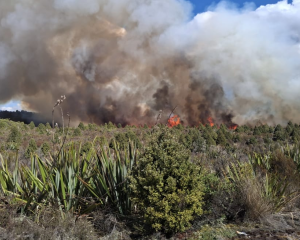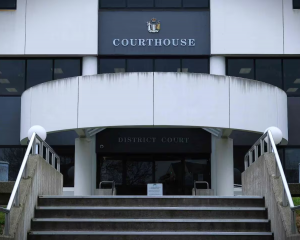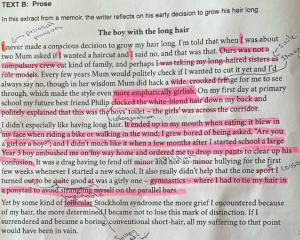Drastic action by a person who flagged down a tourist driving on the wrong side of the road and confiscated their car keys yesterday is being investigated by police.
The incident near Franz Josef Glacier comes as worry escalates about overseas drivers endangering other road users.
It has emerged that the West Coast has the worst record of New Zealand regions for the number serious road incidents involving foreign drivers in the past five years -- 37 per cent between 2009 and 2013.
West Coast police traffic unit officer in charge Sergeant Dave Cross said they were still investigating the Franz Josef incident.
"What appears to have happened is that somebody has observed some pretty poor driving by a tourist on the wrong side of the road for some time," Mr Cross said.
The following driver then flagged down the offending driver and seized their car keys, which were subsequently handed to Franz Josef police.
Further north, Hokitika police received "numerous" complaints of poor driver behaviour on the roads yesterday.
Police said a steady stream of more than 10 complaints poured in yesterday.
Among the incidents reported was of a tourist driving on the wrong side of the road through the Kaniere Rd S-bend.
Meanwhile, a non-injury crash involving a tourist occurred at Donegals, at the intersection of State Highway 73 and the Old Christchurch Rd.
A police spokesman said tourists using GPS often found themselves sent over the Old Christchurch Rd -- a gravel route that was last used as the main road early last century -- because it was the shortest route.
Unfortunately, the narrow winding road proved too much for the driving skills of some.
Mr Cross said police did not condone other motorists forcing people to stop because of the risk of it going wrong, but they were "always conscious" of the safety of "all people" on the road.
"Unfortunately, it has happened previously and the person responsible was cautioned about their behaviour, because of course the public don't necessarily have that right."
Mr Cross said the issue of foreign drivers was "getting serious".
He urged "a little patience" and for people to record the bad driving, and report it to police.
With digital technology available through cellphones it was relatively easy.
"You can't afford to do anything wrong out there because somebody is watching."
He said police used that evidence to confront drivers who, "with stunned silence", were often unaware of their wrongdoing.
West Coast police acting area commander, Detective Inspector Paul Burrell, told the Greymouth Star last week that increasing complaints of tourist driving did not necessarily equate with all driving behaviour on the coast.
However, he agreed that tourists "tend to stand out", compounded by the challenging driving conditions on the coast.
Currently, rental companies are not legally obliged to inform overseas drivers of the local driving conditions.
The Ministry of Transport also does not know if licences presented to car rental companies correlate with actual driving experience, or if licences are in fact legitimate in their country of origin.
"Issue date on a licence cannot necessarily be relied upon to determine/guarantee how long someone has held a licence or their driving experience," Ministry of Transport communications adviser Felicity Connell said last week.
Senior Constable Mike Tinnelly, of Greymouth police, said the spectacle of motorists reading their GPS while driving, and erratic stopping in the middle of the street, were recurring themes this summer.
"We have a lot of it -- we're getting calls in all the time," Mr Tinnelly said.
Dawdling rental vehicles stopping to take photos was also not uncommon.
"Also, we're finding now they'll go in groups of two or three and have walkie-talkies to talk to each other. A lot of instances people just stop in the middle of the road."
Constable Bill Parker, of Franz Josef Glacier police, said from what he had seen some drivers were looking at their GPS rather than the road.
He said that could explain the delayed reaction of vehicles as they entered curves.
"They never admit it but when you follow them, they come to a corner, and turn at the last minute," Mr Parker said.
By Brendon McMahon of the Greymouth Star











